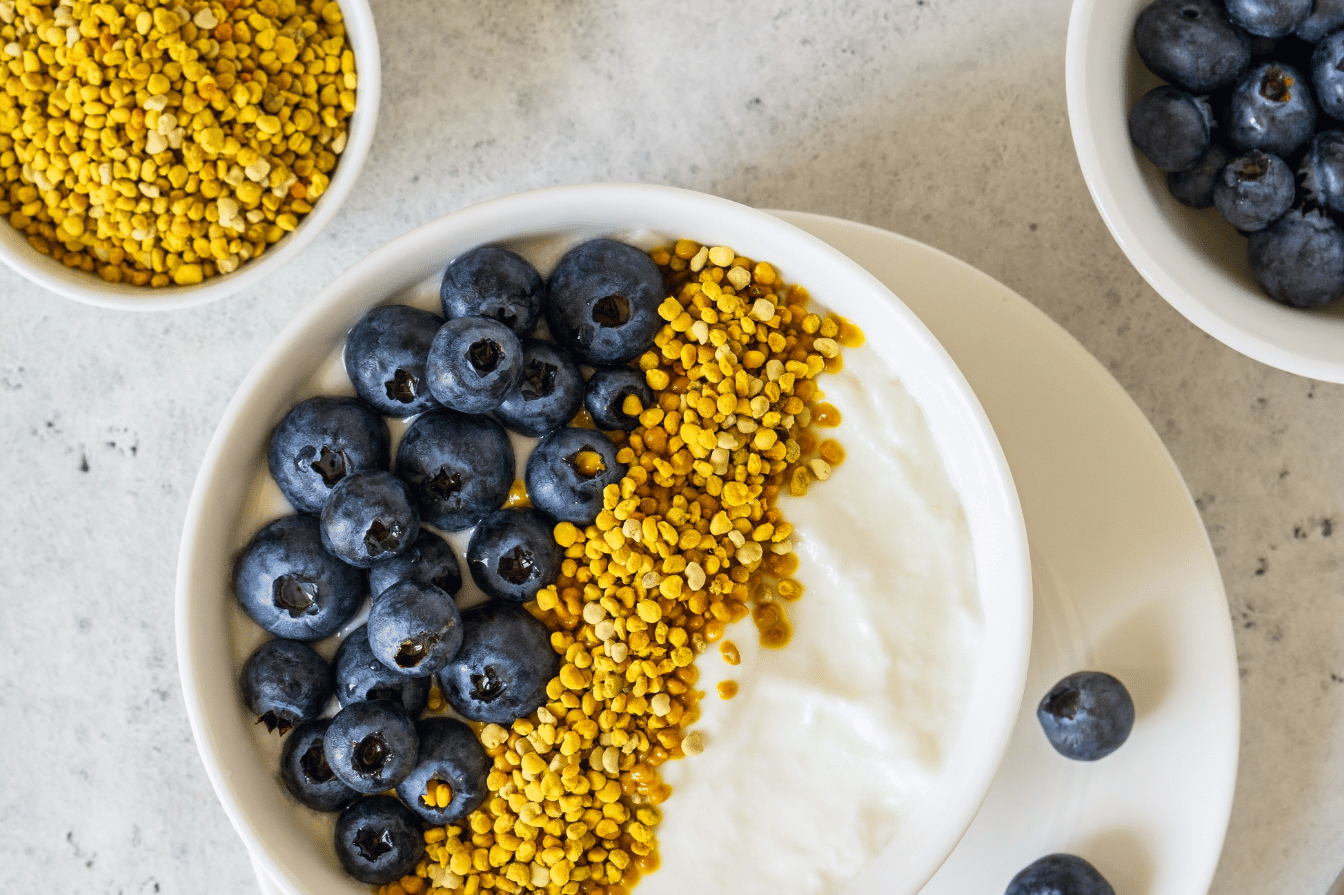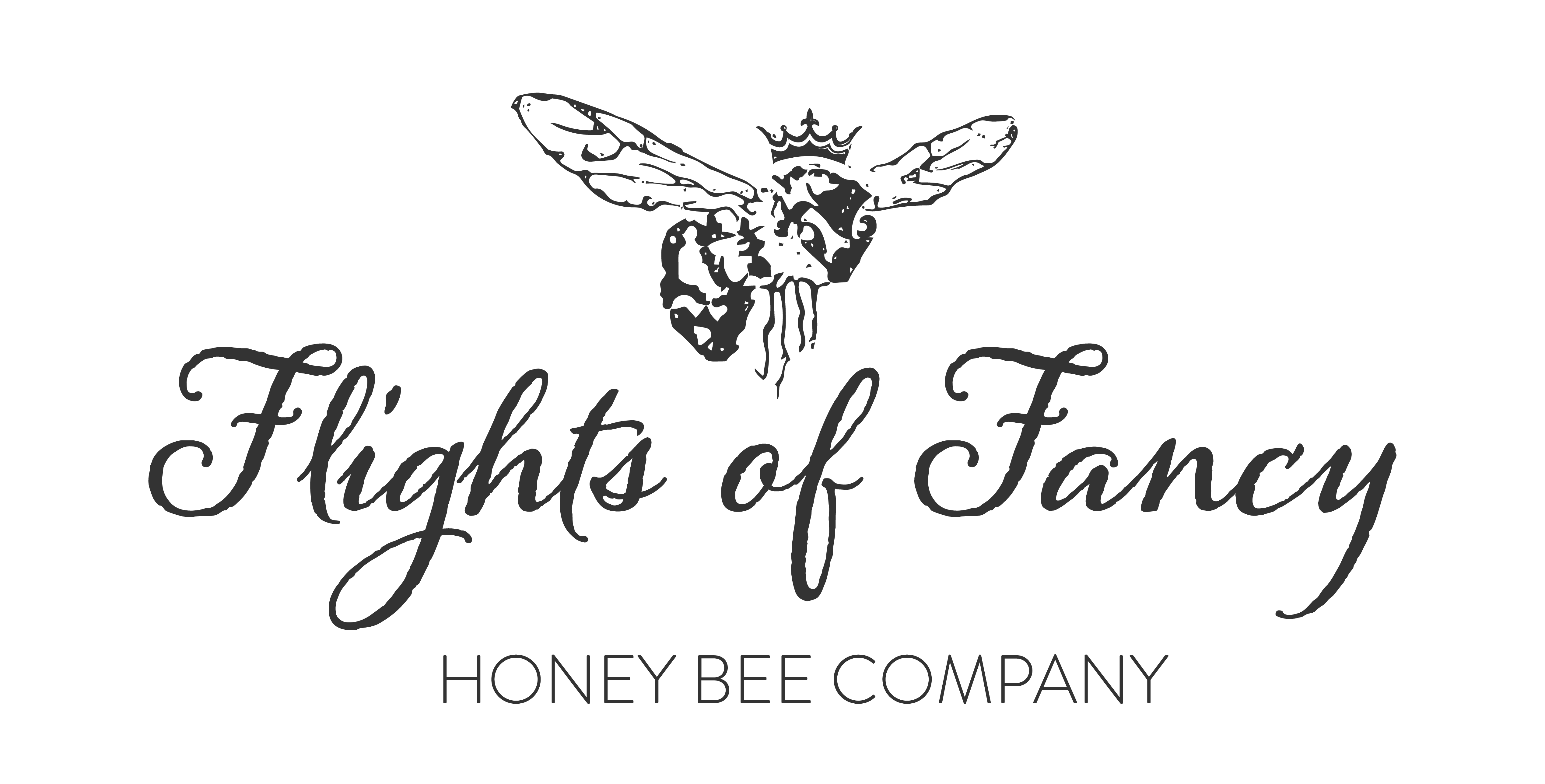Benefits of Bee Pollen and Why You Need it in Your Diet

Nature’s Perfect Food
Bee pollen, also known as “nature’s perfect food,” has been used for centuries for its numerous health benefits. As we celebrate National Protein Day, it’s worth noting that bee pollen contains an average of 22.7% protein, making it an excellent source of nutrition for vegetarians. This superfood is rich in essential amino acids, including methionine, lysine, threonine, histidine, leucine, isoleucine, valine, phenylalanine, and tryptophan.
Honeybees collect pollen from various sources, such as trees, flowers, shrubs, fruits, and vegetables. They use it to feed their young bees in the later larvae stages by combining it with honey and other enzymes to make “beebread.”. Packed with proteins, free amino acids, antioxidants, vitamins, and minerals, these pellets of pollen provide young bees with all the nutrients they need to grow and stay healthy.
Bee pollen provides a range of health benefits, including supporting the immune system, promoting heart health, reducing allergies, lowering inflammation, and improving cholesterol levels. Incorporating bee pollen into your diet is an excellent way to reap these benefits. These benefits make it a valuable addition to anyone’s diet, in addition to its protein and vitamin content.
Bee pollen has a long history of use in traditional medicine. The ancient Greeks used it to improve stamina and vitality, while the Chinese used it to promote longevity and overall health. In modern times, bee pollen has gained popularity due to its potential health benefits.
Significant Health Benefits
One of the most significant health benefits of bee pollen is its protein content. Protein is essential for building and repairing tissues, muscles, and bones, as well as for maintaining a healthy immune system. Bee pollen contains a higher percentage of protein than most animal products.
Bee pollen is also rich in vitamins and minerals, including vitamins A, C, D, E, K, and B-complex, as well as calcium, magnesium, iron, zinc, and selenium. These vitamins and minerals are essential for maintaining overall health and well-being.
Bee Pollen’s Anti-Inflammatory Properties
Bee pollen is believed to have anti-inflammatory properties that may help reduce inflammation in the body, in addition to its protein and vitamin content. Chronic inflammation is a significant contributor to many health problems, including heart disease, cancer, and autoimmune disorders. Reducing inflammation in the body can help prevent these conditions and promote overall health.
Lower Cholesterol Levels
Bee pollen is also believed to help lower cholesterol levels, which is a significant risk factor for heart disease. High levels of cholesterol can cause fatty deposits to build up in the arteries, leading to blockages that can cause heart attacks and strokes. By reducing cholesterol levels, bee pollen may help prevent these conditions and promote heart health.
Bee Pollen Aids in Immune Support
Another potential benefit of bee pollen is its ability to aid in immune support. Bee pollen contains a range of compounds that may help boost the immune system, including antioxidants and antimicrobial compounds. These compounds may help protect the body against harmful bacteria, viruses, and other pathogens.
Allergy-Relieving Properties
Bee pollen is also believed to have allergy-relieving properties. Many people suffer from seasonal allergies caused by pollen from trees, grasses, and weeds. However, bee pollen may help desensitize the body to these allergens, reducing the severity of allergy symptoms.
How to Add Bee Pollen IntoYour Diet
You can easily add bee pollen to your diet in a variety of ways. Sprinkling it on top of yogurt or salads is a popular method, but you can also add bee pollen to smoothies or use it as a natural sweetener in your favorite recipes. Get creative and find the best way to incorporate this superfood into your meals.
Why Local Matters
To ensure the quality and purity of bee pollen, it’s important to purchase it from a reputable source. One of the best ways to do this is by finding a local beekeeper who can provide you with fresh, locally sourced bee pollen. Be sure to take this step to ensure that you’re getting the best product possible.
Local honey and bee pollen are typically the best, as they can help alleviate seasonal allergies and provide other health benefits specific to your region. Local honey contains small amounts of pollen from local plants, which can help desensitize your body to local allergens and reduce symptoms of seasonal allergies.
Similarly, consuming local bee pollen can help support your immune system and provide other health benefits specific to the plants and environment in your region. So, if you have access to local honey and bee pollen, they are definitely worth incorporating into your diet for their potential health benefits.
Shop our bee pollen: coming soon
Save 15% off of your bee pollen with discount code: POLLEN15
Ordering outside of Canada? Visit my Etsy Shop



